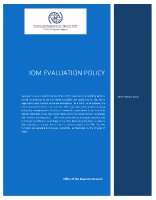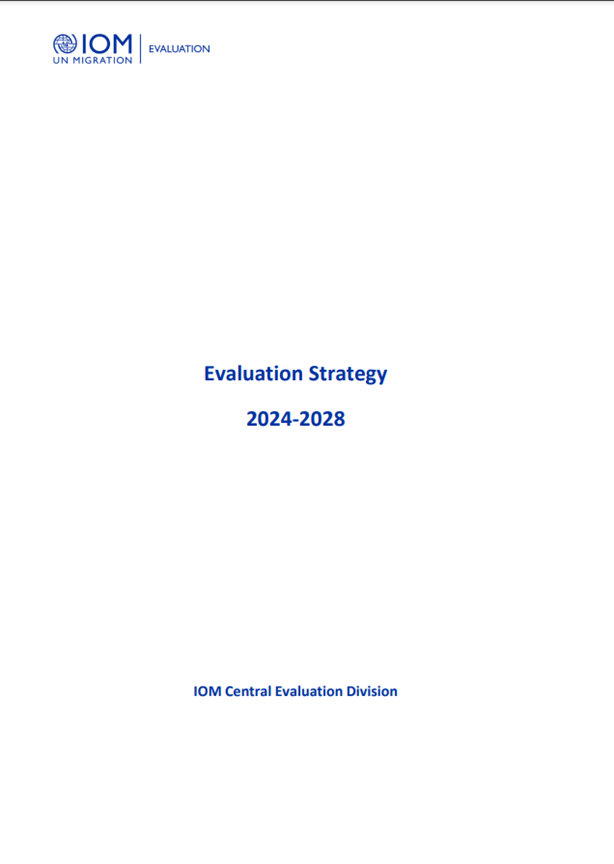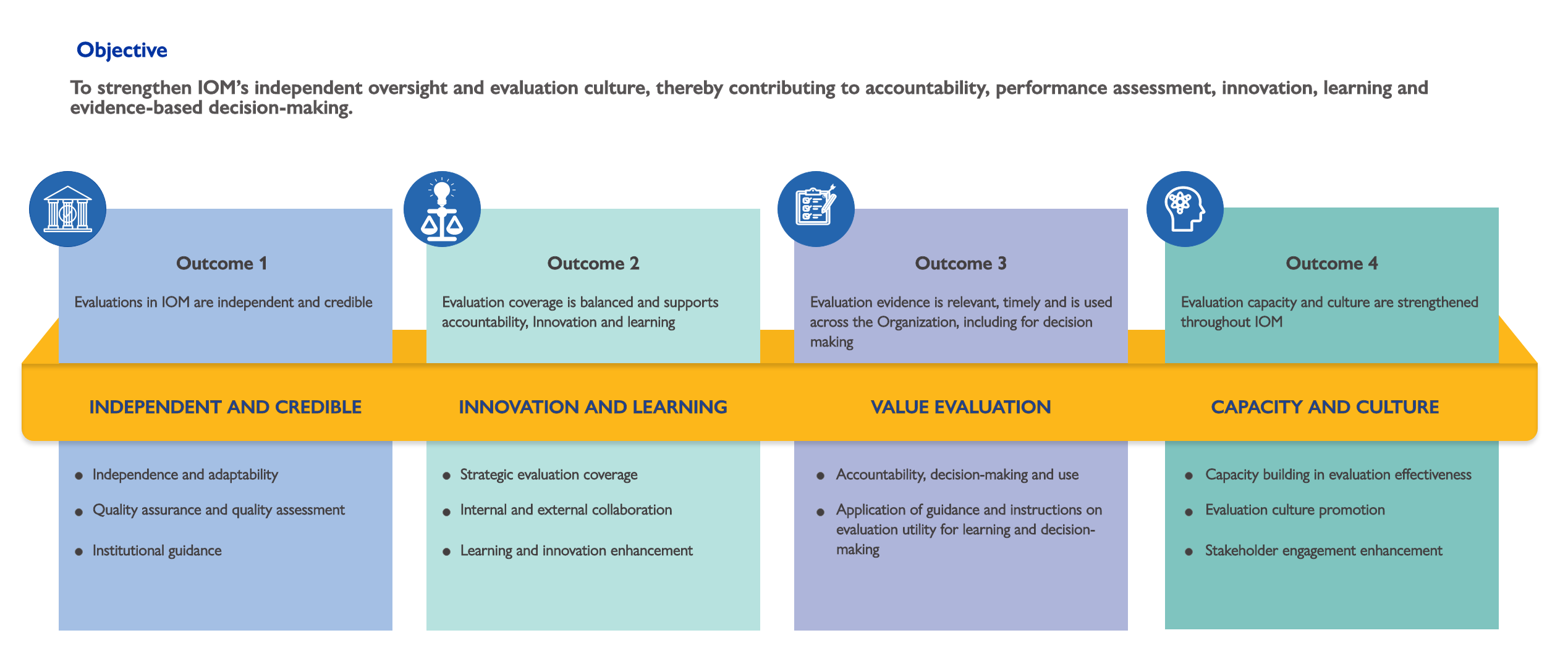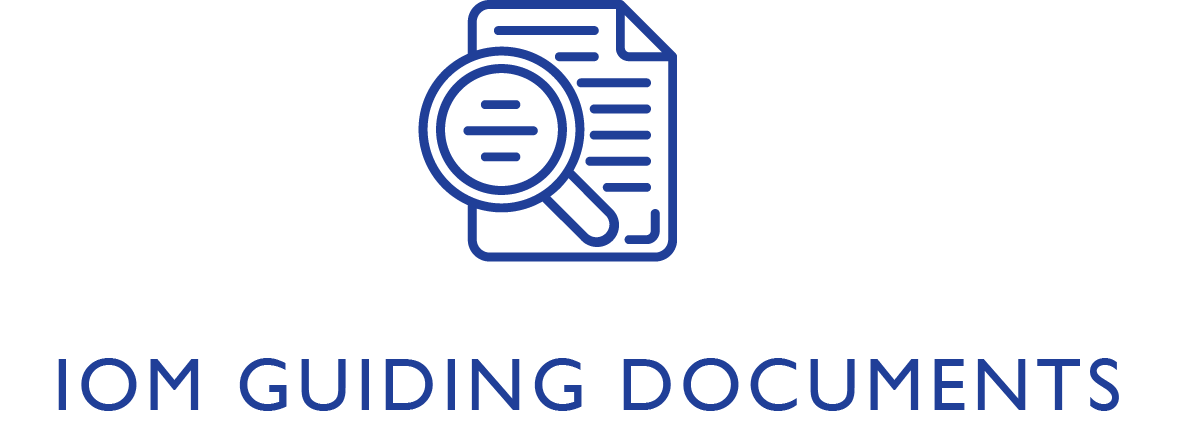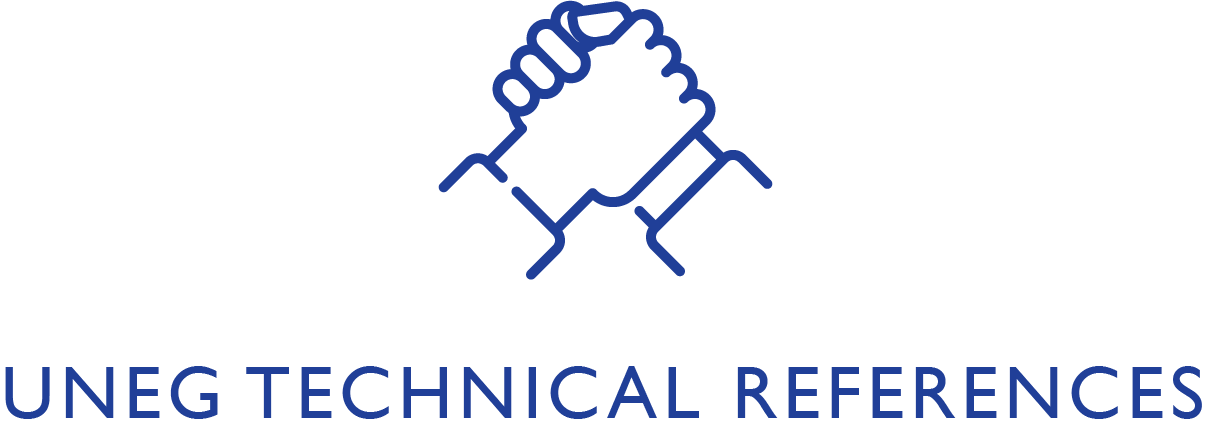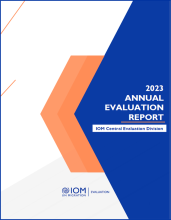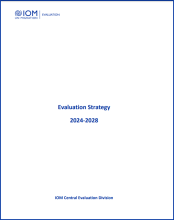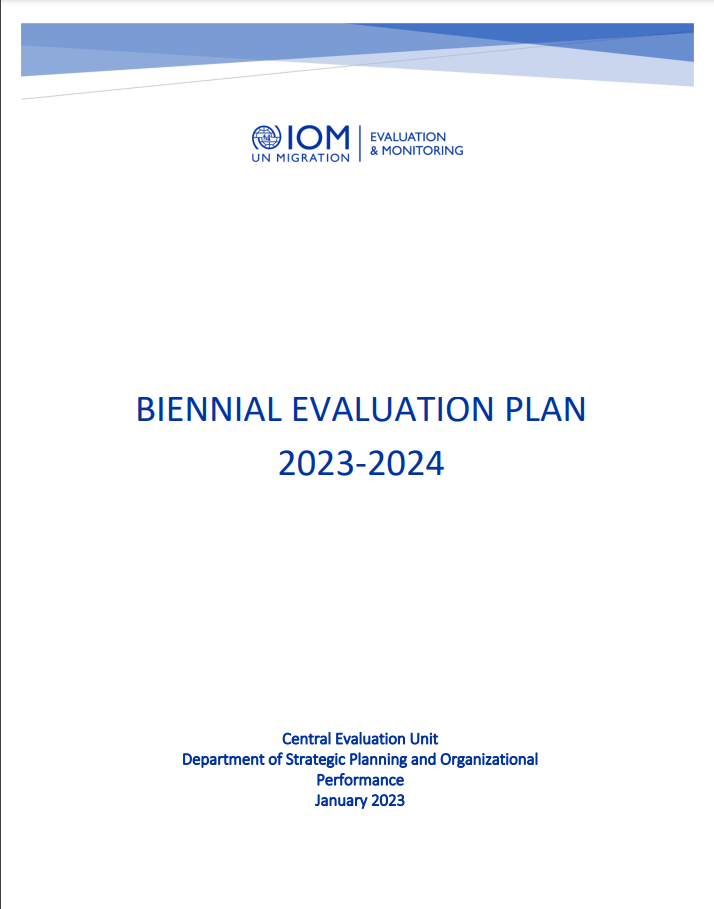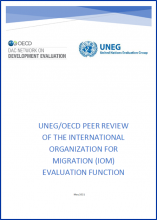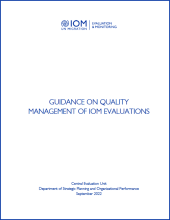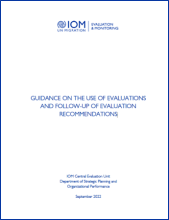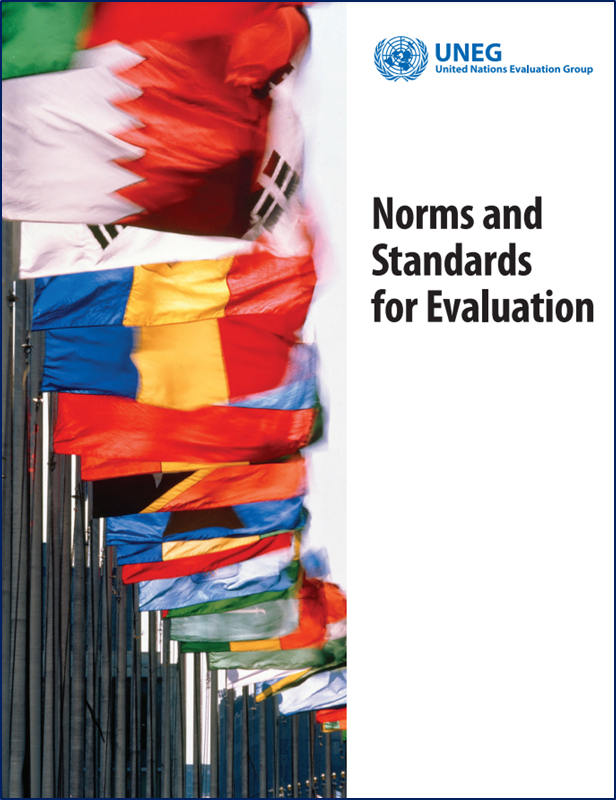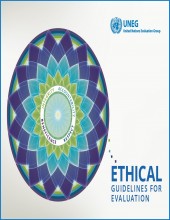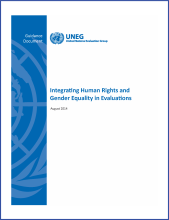Evaluation
ROLE OF IOM CENTRAL EVALUATION
![]() Contributes actively to the oversight, accountability, transparency, strategic guidance and organizational leadership, and learning of the Organization
Contributes actively to the oversight, accountability, transparency, strategic guidance and organizational leadership, and learning of the Organization
![]() Sets the norms and standards for Evaluation at IOM, and prepares relevant institutional policies and guidance
Sets the norms and standards for Evaluation at IOM, and prepares relevant institutional policies and guidance
![]() Provides technical assistance to IOM departments and offices for evaluation and monitoring
Provides technical assistance to IOM departments and offices for evaluation and monitoring
![]() Contributes to the functioning of decentralized evaluation systems and guarantees their quality
Contributes to the functioning of decentralized evaluation systems and guarantees their quality
![]() Conducts central and corporate evaluations as well as specific assessments and reviews
Conducts central and corporate evaluations as well as specific assessments and reviews
Policy and Strategy
Evaluation is a core function at IOM, conducted across all levels of the organization. Guided by the Evaluation Policy, which outlines the overall framework and requirements for evaluation conduct and use at IOM, the Central Evaluation Division aims to enhance how IOM commissions and utilizes evaluative evidence.
The evaluation strategy for 2024-2028 sets out the main objective of the Central Evaluation Division (CED), which is to strengthen IOM’s independent oversight and evaluation culture, thereby contributing to accountability, performance assessment, innovation, learning, and evidence-based decision-making.
Two Levels of Evaluation
 CENTRALIZED
CENTRALIZED
Conducted and managed by the Central Evaluation Office
 DECENTRALIZED
DECENTRALIZED
Managed by country, regional or other headquarter-based units

IOM M&E Guidelines
The IOM Monitoring and Evaluation Guidelines contribute to strengthening the capacities at IOM by providing more detailed and in-depth support for the systematic monitoring and evaluation (M&E) of any IOM intervention, including projects/programmes and policies, as well as strategies at national, regional and global levels.
Guiding Documents and Technical References
Annual Evaluation Report 2023
The Evaluation Annual Report for the year 2023 presents a comprehensive overview of the Division's activities, achievements, and initiatives throughout the year, highlighting its commitment to promoting accountability, performance assessment, innovation, institutional learning, organizational leadership, and evidence-based decision-making.
Evaluation Strategy 2024-2028
The Central Evaluation Division (CED) continues to strengthen its capacity and independence in the conduct of its mandate through the implementation of the Evaluation Strategy 2024-2028. This ongoing effort is in response to the positive assessment and recommendations of the MOPAN 2023 review. In line with the IOM Strategic Plan 2024-2028 and the Strategic Results Framework 2024, the main objective of the Evaluation Strategy 2024-2028 is to strengthen IOM’s independent oversight and evaluation culture, thereby contributing to accountability, performance assessment, innovation, learning, and evidence-based decision-making.
Biennial Evaluation Plan 2023-2024
The IOM Biennial Evaluation Plan 2023-2024 includes a selection of central evaluations that will be conducted by the IOM Central Evaluation Division of the Department of Strategic Planning and Organizational Performance (EVA/DPP).
UNEG/OECD Peer Review of the International Organization for Migration (IOM) Evaluation Function
The Peer Review of IOM’s evaluation function was conducted under the provisions contained in the United Nations Evaluation Group (UNEG) Framework for Professional Peer Reviews of the Evaluation Function of UN organizations and the OECD DAC. It is the first Peer Review of IOM’s evaluation function and it was conducted at the request of IOM.
Manual on Real-Time Learning and Performance Monitoring Review
The Manual on Real Time Learning and Performance Monitoring Review has been developed in response to an increasing demand for reflection activities to generate evidence-led insights for decision-making, accountability, and learning purposes across IOM’s work. The Real Time Learning (RTL) approaches and the Performance Monitoring Reviews (PMR) tool complement ongoing monitoring activities and support evaluative thinking across strategic and operational areas of the Organization. They aim to provide rapid insights on a situation, intervention, or event, with limited financial investment. They can be used in cases where activities requiring additional concerted reflection, discussion, and potentially a change in direction have been identified.
Guidance on Quality Management of IOM Evaluations
This Guidance provides details on the processes, roles, and responsibilities to assure the quality of IOM evaluations. It highlights the importance of using the checklist for reviewing the terms of reference of evaluations by evaluation managers. It also introduces two mandatory quality control tools for reviewing inception and evaluation reports by both evaluators and evaluator managers.
Guidance for Evaluation Managers
This Guidance is part of a common set of guidance notes issued by the Central Evaluation function of IOM as part of the OIG 2021-2023 Strategy for the management of evaluation and monitoring functions and supports the implementation of the IOM Evaluation Policy (September 2018). Guidance notes are technical documents that set IOM standards and provide explanations on the processes and methodologies used for conducting both monitoring as well as evaluation (M&E) work at IOM.
Guidance on the Use of Evaluation and Follow-Up of Recommendations
This document outlines the potential uses of evaluations and provides guidance on how to ensure the use of evaluations and follow-up of evaluation recommendations. In particular, all IOM evaluations (internal and external) should include a management response and action plan for the implementation and follow-up of their recommendations.
The updated Norms and Standards were discussed and unanimously adopted at the April 2016 UNEG Annual General Meeting in Geneva. The 2016 Norms and Standards are interrelated and mutually reinforcing. The ten general norms should be upheld in the conduct of any evaluation; the four institutional norms should be reflected in the management and governance of evaluation functions.
UNEG Ethical Guidelines for Evaluation
The ethical principles outlined below are firmly grounded in, and build on, the 2016 UNEG Norms and Standards for Evaluation that provide the agreed normative principles to be upheld in the conduct, management and governance of evaluation.
UNEG Integrating Human Rights and Gender Equality in Evaluations
This Guidance has been developed in response to the results of a mapping study conducted to determine the level of integration of HR & GE approaches in evaluations carried out in UN agencies, funds, programmes and training institutions (hereafter referred to as ‘UN entities’).
UNEG Impact Evaluation in UN Agency Evaluation Systems: Guidance on Selection, Planning and Management
This Guidance Note, used in conjunction with many other recent resources on impact evaluation, provides a sound starting point for UN evaluation bodies wishing to commence conducting impact evaluations.

